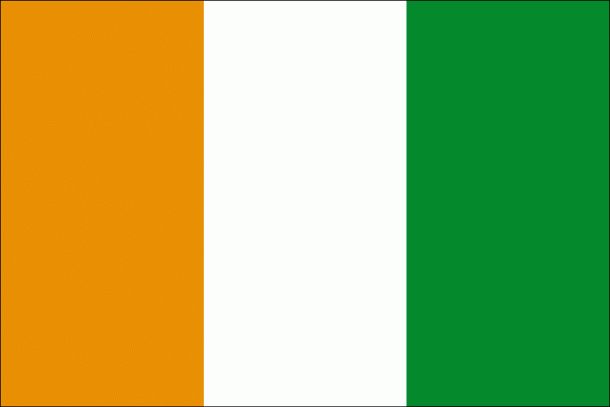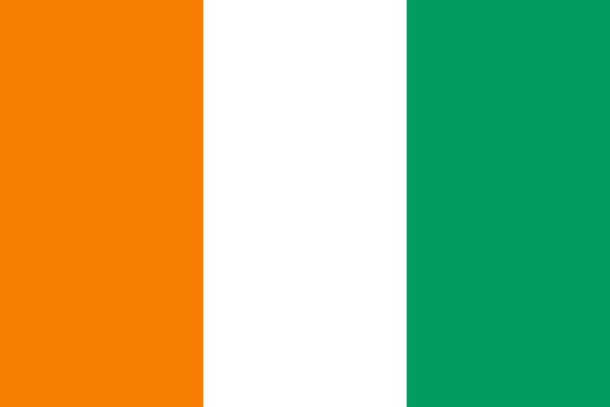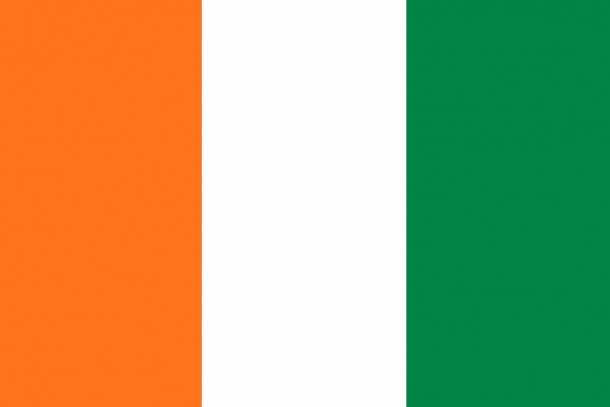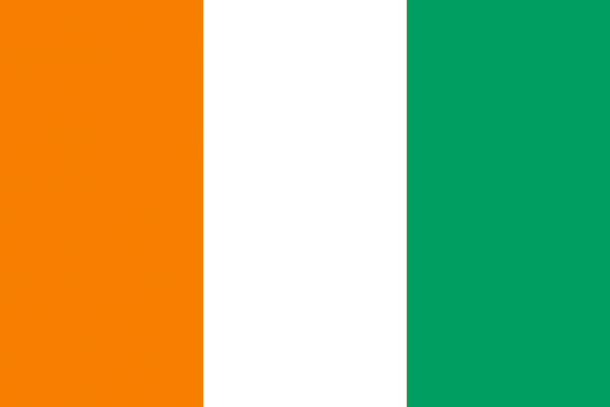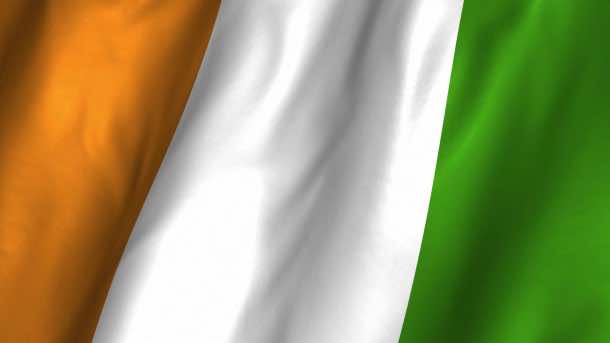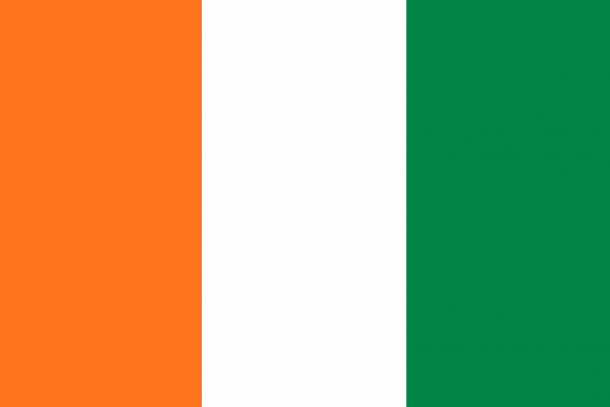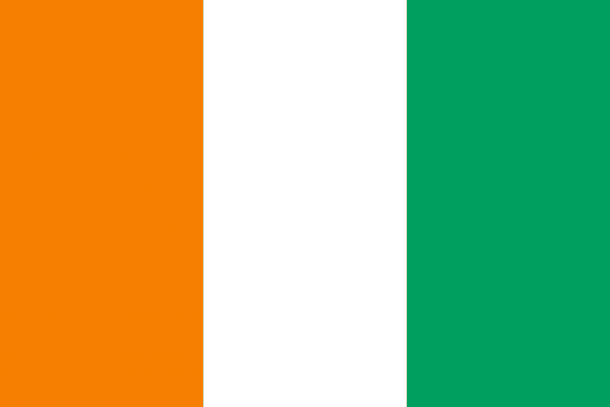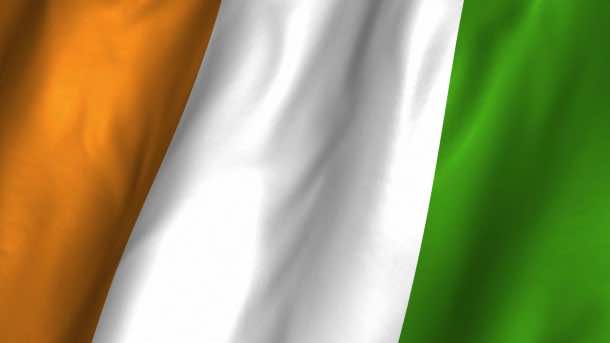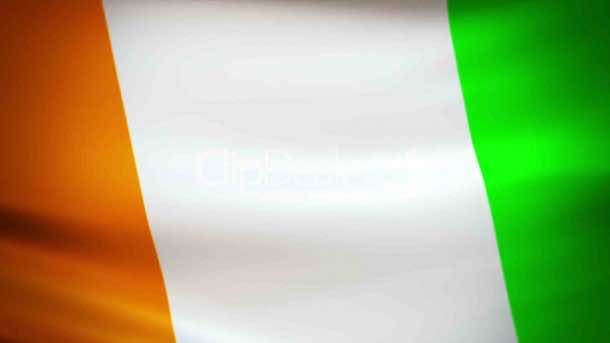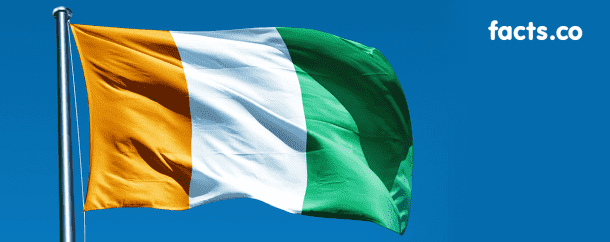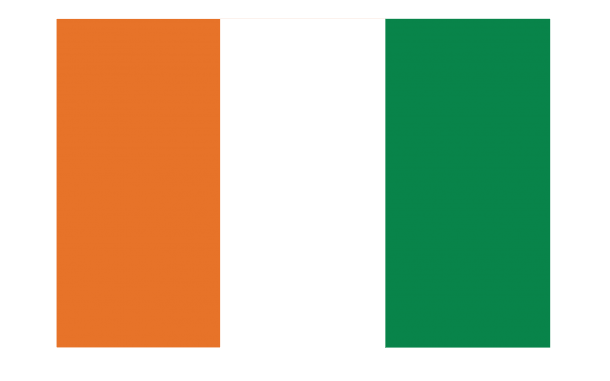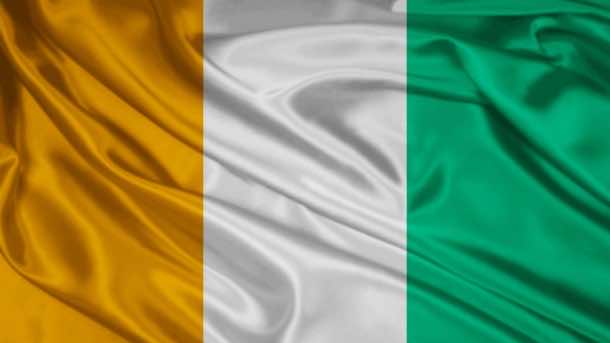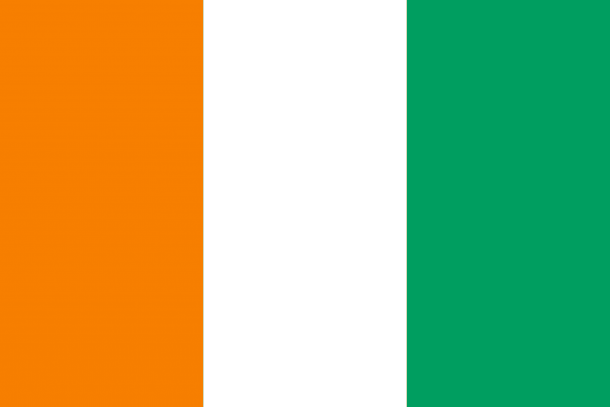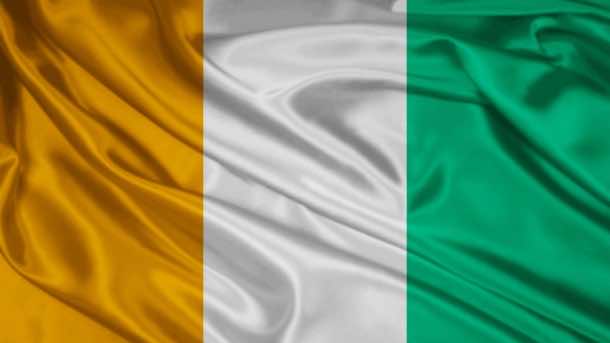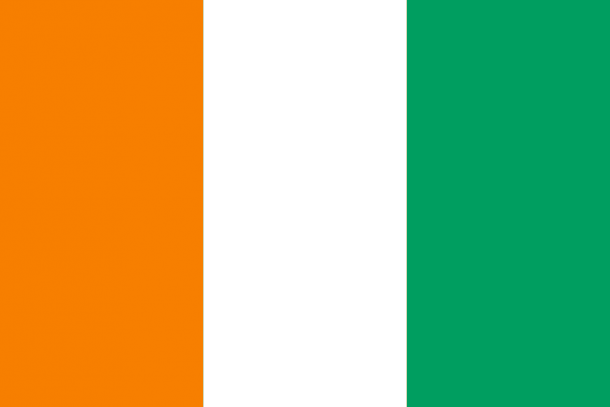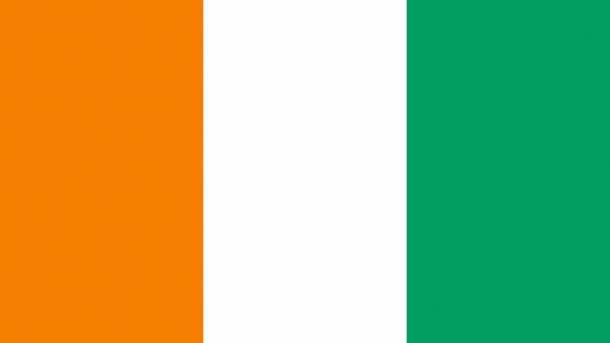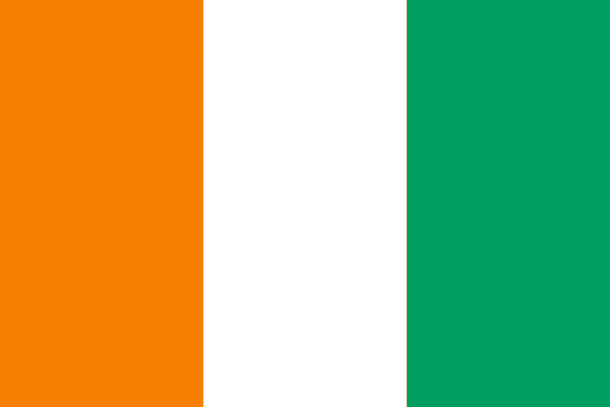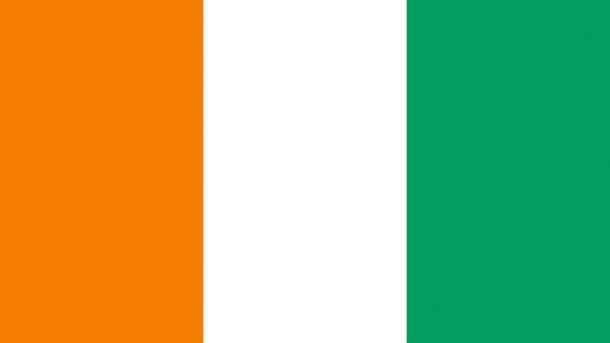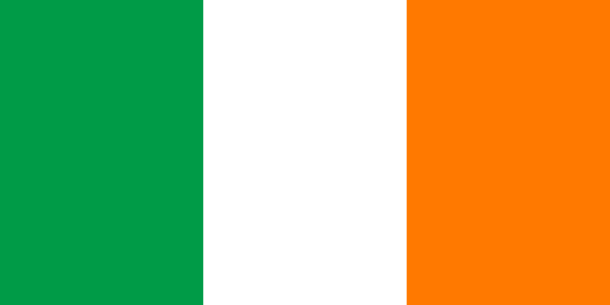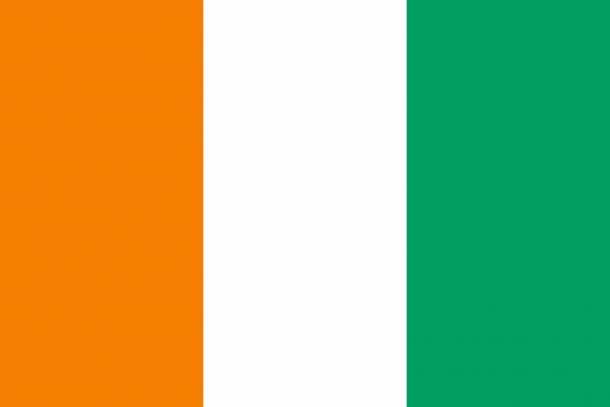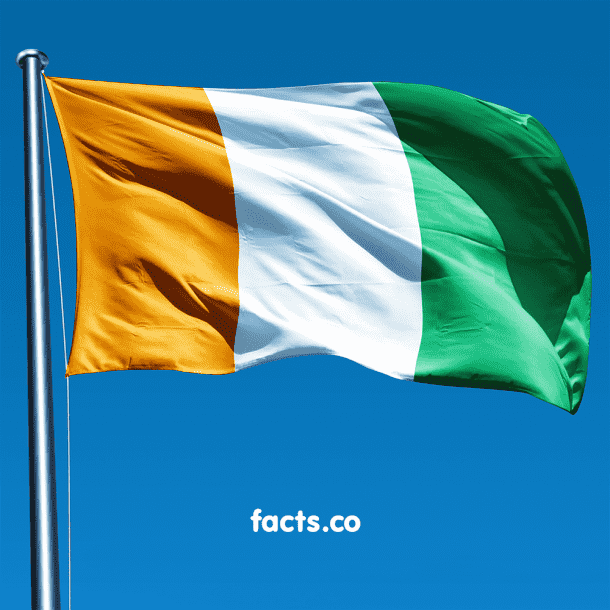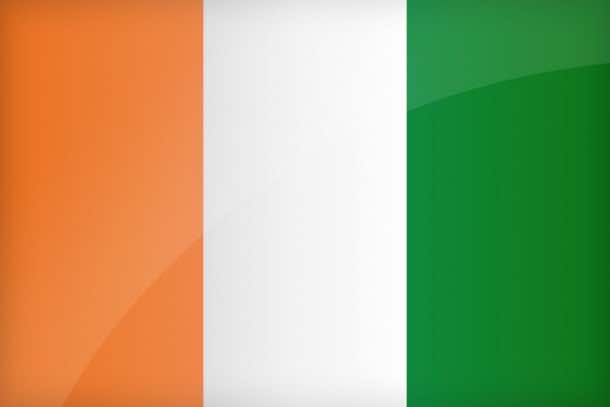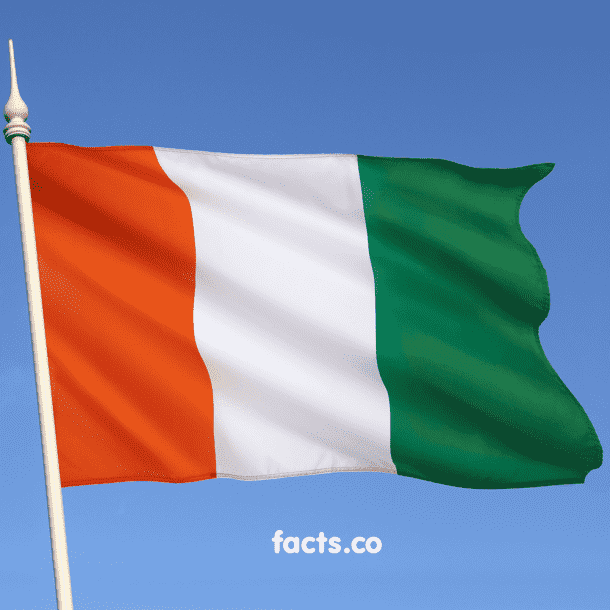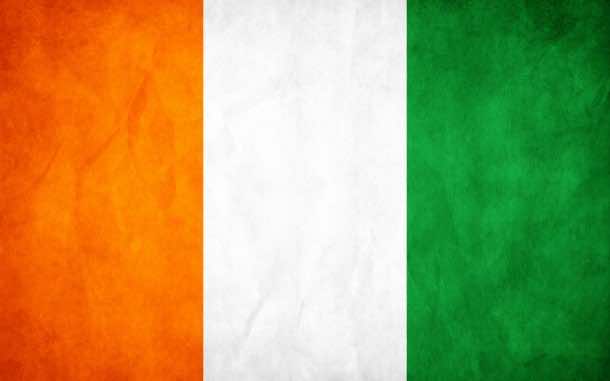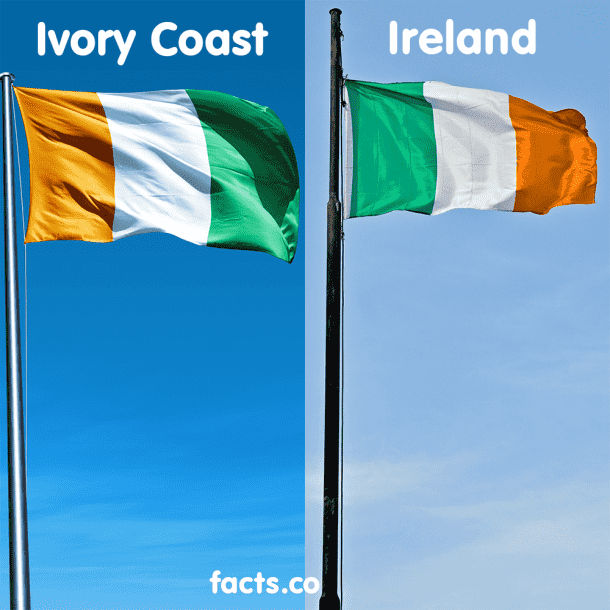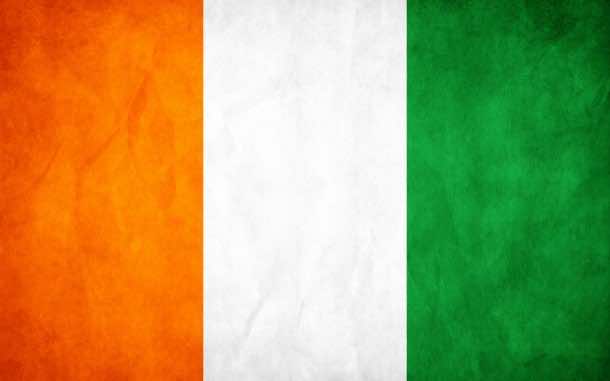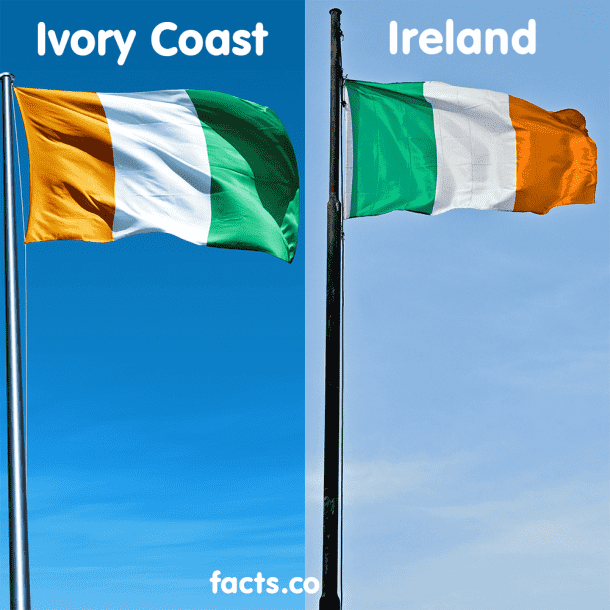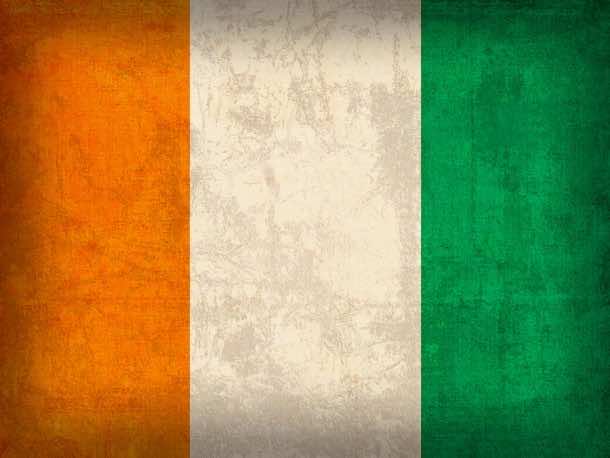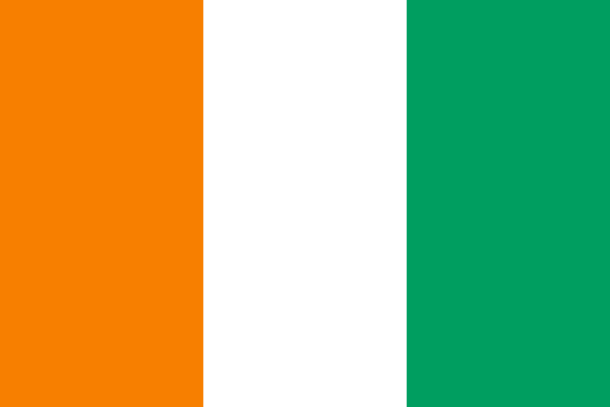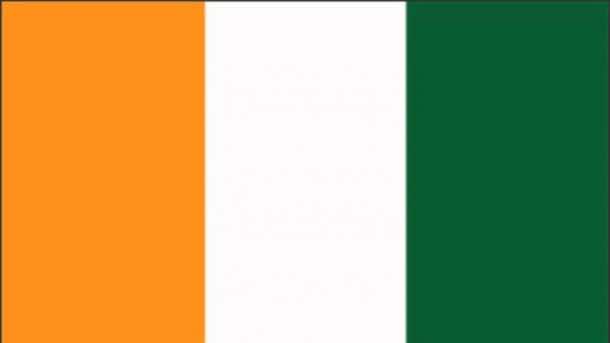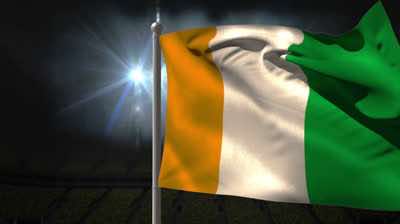The flag of Ivory Coast features three equivalent straight strips of orange, white, and green.
After getting freedom, the Ivory Coast established a reduce partnership of Western Africa states. The flags of these states were affected both by the Pan-African colors used by Ghana first time, and also by the French Tricolor. The Ivory Coast’s flag colors were also used by Niger. They were designed to represent as: the orange color appears for the area, the grassland found in the north aspect and its infertility, the white symbolizes serenity, and the green symbolizes wish and also the woodlands of southeast the nation. The flag was applied in 1959, just prior to independence.
The referendum of the French Fifth Republic in 1958 provided the then French hives a choice to become separate, to become completely separate, or to be a part of French. When Ivory got free completely, on Aug 7, 1960, it kept the same flag without any changes. The Flag of Ivory coast is similar to the flag of Ireland in Europe, though the flag of Ireland is longer and has the colors changed – green, white, and orange
The straight placement of the colors of the flag of Ivory Coast was the influence of the previous flag the French tri-color of red, white, and blue.
The orange color on the flag of Ivory Coast is expected to signify along with of the area, which is rich and nice. It also symbolizes the significance of the country’s fight for independence, the blood of an adolescents battling for emancipation. The white color is for serenity, but also for serenity with rights. The green color is for the wish of the nation and their confidence for a better future. The orange symbolizes the savannahs in the north of the area. The green appears for the forest and wood in the south. Unity is the significance of the white color.
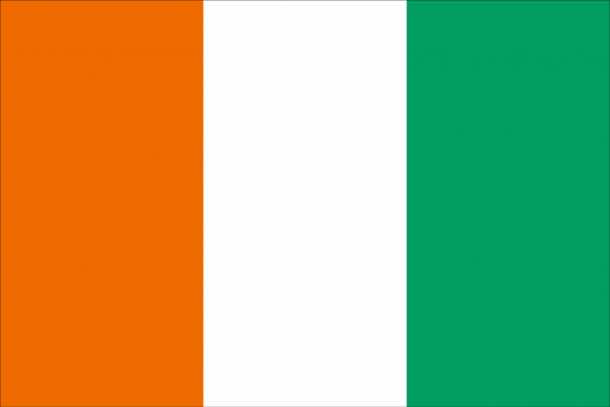
Sao Paulo, Brasil
http;//aimore.org
http://aimore.net


